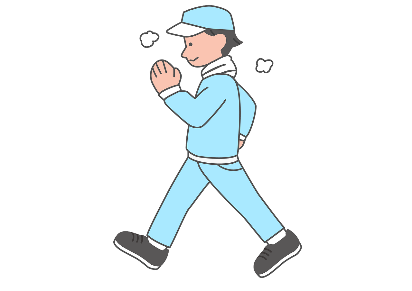exercise and mental health
19-March-2023 By: Obiageli Igboanugo
Exercise and mental health are linked to each other, and this article is to talk about how mental health can be helped with exercise.
What is mental health?

Mental health is the totality of our feelings of wellness in every compartment of our lives. Our beings as human are very intricate and linked and that’s why mental health can influence our thoughts, emotions and behaviours. Also, it influences how we respond to stress, interact with others, and make decisions. Every period of life, from childhood and adolescence to maturity, is vital for mental health as trauma during any of these stages can make mental health worse.
What is exercise?
According to the dictionary, exercise is any activity that requires physical effort, carried out to sustain or improve health and fitness. I like this definition because exercise is about physical activity which can be as little as a short stroll in the park, house chores that gets you moving or an intense workout in the gym.
The Government guidelines encourages adults to aim to do 150 minutes of moderate activity a week or 75 minutes of intensive activity a week. This may seem daunting to some people, but you can start small build up. It’s been found that brief walks, even at a low intensity can improve our mood and energy

levels in as little as 10 mins.
Bottomline, everybody can exercise but the intensity will depend on your circumstances. A reminder for you is to enjoy the moment you are active, forget about losing weight or solving any health challenge during the moment. This will put you in the flow and the benefits of losing weight and getting healthier will follow. Exercise should be a marathon, not a sprint. Determine to stay in it as a lifestyle.
How does exercise benefit mental health?

Exercise is beneficial because it helps us get in shape, lose weight and improve our overall wellbeing. This is because exercise impacts the levels of 3 chemicals (serotonin, stress hormones, endorphins) responsible for our moods. Particularly for mental health, two more chemicals play a part. One of them is endocannabinoids which is beneficial for improving sleep and reducing anxiety. Another one is dopamine which is necessary for memory, focus and motivation.
Here are ways exercise is beneficial to mental health:
Exercise is a great aid to sleep.

As exercise improves the mood by releasing endorphins, it can also reduce anxiety and stress and enable you to sleep better at night. Also, exercise can reduce tension on the skeleton and this enables more relaxation and better sleep. Improvement to sleeping patterns have a positive effect on mental health. Exercise reduces the level of cortisol and adrenaline (stress hormones) in the body by stimulating the production of endorphins (natural pain killers and mood elevators)
Exercise improves our ability to concentrate and focus.
One of the side effects of depression is foggy brain and inability to concentrate. So, exercise improves concentration and focus. In addition to this is the positive effect of exercise in boosting memory and thinking skills. According to Harvard health, the parts of the brain responsible for thinking and memory are larger in those who exercise consistently.

Exercise protects against cognitive decline.
According to TIME MAGAZINE, older Citizens who are not physically active have more deterioration of white matter in the brain and this white matter has been found to be responsible for impairment in decision making and memory loss. Therefore, regular exercise may slow cognitive decline and may slow the encroachment of dementia.
Exercise benefits social life.
One of the negative effects of depression and some other type of mental health is the anti-social feeling it creates. The victim does not want to associate with others. Exercise can break this syndrome when you participate in physical activities with others, improve self-esteem, and provide the needed outlet for the feeling of frustration that accompany mental health.

Exercise controls chronic diseases.
Finally, the physical benefit of exercise is in controlling chronic diseases such as heart disease, diabetes, high blood pressure, etc., this way it benefits sufferers of mental health as they are also high risk for these diseases.
However, despite the benefits of exercise for mental health, some victims of mental health cannot cope with physical exercise. According to Mind, the link between exercise and mental health are complicated. Inactivity can be both a cause and a consequence of mental illness. For example, depending on how severe the mental health is, some sufferers cannot cope with large group exercises. Nevertheless, it is advised that mental health providers provide physical activity interventions for sufferers in conjunction with other treatments.